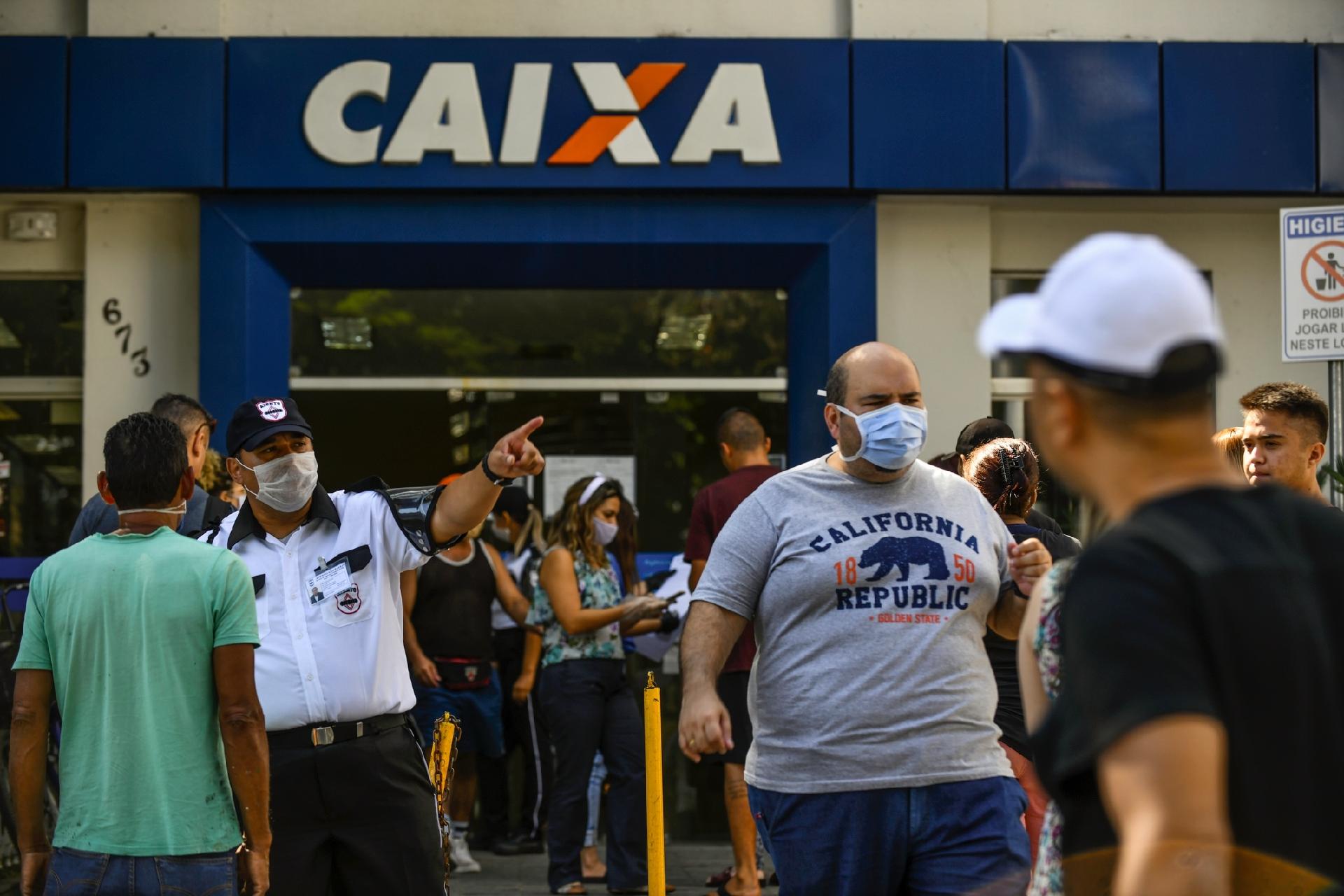RIO DE JANEIRO, BRAZIL – The reinstatement of the pandemic emergency aid will serve more people than initially planned. According to the economic team’s latest estimates, the program should cover over 40 million people in 2021. On February 4th, Economy Minister Paulo Guedes had expected that 32 million Brazilians would be covered by the emergency aid.

However, the aid will likely cover fewer people than in 2020. The Ministry of Economy’s goal is to filter and narrow the program, directing funds only to the population in the lowest levels of poverty.
According to people close to the negotiations, the economic team’s plan is based on the assumption that 75% of emergency aid recipients in 2020 were in the poorest half of the Brazilian population. The new program would be directed only to this 75% share of poorer beneficiaries.
Although a payment to over 40 million has been mentioned behind the scenes, the percentage could represent at least 50 million – considering the December figures from Caixa, the state-owned bank responsible for making all aid payments (67 million received the emergency aid).
In any case, the Ministry is trying to ensure that the rules attend the neediest while saving resources in relation to last year’s program – which even covered civil and military personnel, violating the rule that payments should only go to those not employed.
The number of people to benefit from the aid will include “Bolsa Família” (Family Grant) recipients, who should be granted a raise in order to receive the same amount as the other beneficiaries.
Despite pressure from legislators for a higher amount, the economic team insists that the amount to be paid should range between R$200 and R$250 per beneficiary.
Figures such as R$300 are rejected on the grounds that the whole country would be impoverished as a result of a more expensive program (such as inflation and higher interest rates).
The team is also considering to end the double payment for single mothers, made last year – in which R$1,200 was paid rather than the R$600 in the first five installments, and R$600 instead of R$300 in the last four.
The program could cost anywhere between R$8 billion and R$12.5 billion per month, considering the population and benefit value variables provided by the rules under consideration.
The Ministry of Economy has been saying that it is pursuing a program that will run for only three or four months, which would lead the minimum cost of the emergency aid in 2021 to a figure between R$24 billion and R$50 billion. In 2020, the total amount paid stood at R$322 billion.
To free up this amount, the government needs to amend the Constitution to ensure legal certainty for the operation because of two main factors. Currently, fiscal rules prevent the country from creating a program that requires raising funds by debt – therefore, rules must be relaxed.
Another argument is that there is controversy over whether or not the pandemic impacts will be foreseeable or otherwise in 2021, given that the novel coronavirus reached the country almost a year ago.
This interpretation is significant because the emergency aid will be established by means of extraordinary credit – a provision that frees up resources beyond the traditional budget and above the spending cap, allowed by the Constitution exclusively for urgent and unforeseeable expenses (as in the case of war, internal uprising, or public calamity).
As there is no technical consensus on whether or not the pandemic is something foreseeable, a PEC (proposal to amend the Constitution) to release spending this year would settle the issue.
The instrument used in 2020 was the War PEC, which relaxed the fiscal rules and was in force until the end of the year.
Now, Guedes prefers a public calamity clause to be included in the Federative Pact PEC – a bill he prepared which has been pending since November 2019 in Congress and revises public revenue and spending.
Guedes’ goal is to release the resources, partially offset with a fiscal measure. The Ministry of Economy was to “compact” the Federative Pact PEC with the public calamity clause and submit a draft to Congress. From there, discussions will begin with the legislative to determine the text’s final structure.
The economic team expects the final approval in three weeks and the aid to start being paid in March. As for Congress, the proposal is expected to be submitted to the Senate leaders’ meeting on Thursday, February 18th.
Senate president Rodrigo Pacheco (DEM-MG), should meet the day before with Senator Márcio Bittar (MDB-AC), rapporteur of the Federative Pact PEC. Bittar would also be studying his report on the proposal over Carnaval.
After a meeting on Friday, February 12th, Guedes, Pacheco and Chamber president Arthur Lira (PP-AL) announced an agreement whereby the aid was conditioned upon the approval of the Federative Pact PEC.
Pacheco said at the time that the aid would be paid in March, April, May and, “possibly”, in June.
Source: Folha de São Paulo

